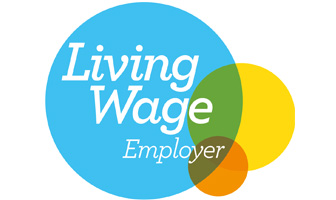Blog
Blog Posts
The Chancellor, Jeremy Hunt, presented his Spring Budget on 15 March 2023. There were no changes to the income tax rates and thresholds, which had been announced previously. However, the Chancellor unveiled significant pension reforms and the successor to the capital allowances super-deduction which comes to an end on 31 March 2023. Firstly, a reminder of the changes for 2023-24 previously announced.
Previous changes for 2023-24
The following bullet points cover the main points:
- £900 Cost of Living Payment for households on means-tested benefits in 2023-24
- £300 Pensioner Cost of Living Payment in 2023-24
- £150 Disability Cost of Living Payment in 2023-24
- Business Rates: freezing the multiplier in 2023-24
- Business Rates: 75% relief for Retail, Hospitality and Leisure sectors in 2023-24, up to £110,000 cash cap
- Income Tax and National Insurance: maintain thresholds at 2023-24 levels until April 2028
- Inheritance Tax: maintain thresholds at current level until April 2028
- Income Tax: reduce the dividend allowance from £2,000 to £1,000 from April 2023 and then to £500 from April 2024
- Income Tax: reduce the additional rate threshold from £150,000 to £125,140 from April 2023
- Capital Gains Tax: reduce the annual exempt amount from £12,300 to £6,000 from April 2023 then £3,000 from April 2024
- Vehicle Excise Duty: equalise treatment of electric and internal combustion engine vehicles from April 2025
- National Insurance: maintain the secondary threshold for employer contributions at current level from April 2023 until April 2028
- VAT: maintain registration threshold at current level, £85,000, to 31 March 2026
- First Year Allowance for electric vehicle charge points: extend for a further two years until April 2025
- Capital Gains Tax: extend the period for no gain/no loss transfers to three years for couples that separate or divorce
- Annual Investment Allowance: permanently set at £1m from April 2023
- Income Tax: basis periods reform for the self-employed from April 2024 with transition year in 2023-24
Corporation tax increase confirmed
The most significant tax increase for 2023-24 is the increase in the main rate of corporation tax from the present 19% to 25%.
The Chancellor resisted pressure to reduce or cancel this increase and larger companies with taxable profits in excess of £250,000 will, as a result, see a significant increase in their company tax bills for the financial year 2023 (beginning 1 April 2023).
Fortunately, smaller companies, with taxable profits below £50,000 will continue to pay corporation tax at 19%.
Firms with profits between £50,000 and £250,000 will pay at increasing rates between 19% and 25%.
The availability of the lower rates can be reduced if a company has associated companies or if an accounting period is less than 12-months.
Pension reforms - lifetime allowance abolished
The pension lifetime allowance places a cap on total tax relieved pension savings over a person's lifetime. The lifetime allowance is set at £1,073,100 for 2022/23. Where the allowance is exceeded, the excess is taxed at 55% where it is taken as a lump sum and at 25% where taken as a pension. The lifetime allowance is abolished from 6 April 2023, meaning that from that date there is no limit to the tax-relieved pension savings a person can accumulate. As a result of the abolition of the allowance, the punitive lifetime allowance tax charges are also abolished. However, a cap will apply to the amount that can be taken as a tax-free lump sum, which from 6 April will be limited to £268,275 where this is lower than 25% of the pension fund. The cap is equal to 25% of the current lifetime allowance.
Pension reforms - annual allowance increased by 50%
The pension annual allowance is also increased from 6 April 2023, from its current level of £40,000 to £60,000. You can make tax-relieved pension contribution each year up to 100% of your earnings (or £3,600 if lower) as long as you have sufficient annual allowance available. Employer contributions counts towards the annual allowance. Where the annual allowance is not used in full in a tax year, it can be carried forward for up to three years; however, you must use the current year's allowance before utilising unused amounts from earlier years.
Full expensing of capital expenditure
The super-deduction for companies comes to an end on 31 March 2023. It is replaced by full expensing for capital expenditure from 1 April 2023. This applies only to companies and will be available in respect of qualifying expenditure incurred in the three-year period from 1 April 2023 to 31 March 2026. The expenditure which will qualify for full expensing is that which is eligible for main rate writing down allowances. A 50% first-year allowance will continue to apply for the same period for expenditure which is eligible for special rate capital allowances. Expenditure on cars does not qualify for first-year allowances.
Full expensing provides immediate relief for capital expenditure in full in the accounting period in which it is incurred.
Unlike the annual investment allowance (AIA), there is no limit on the qualifying expenditure which can be deducted.
Full expensing will therefore benefit companies who incur significant capital expenditure in excess of the AIA limit of £1 million. Likewise, there is no limit on the expenditure that will be eligible for the 50% first-year allowance.
R&D tax credit changes
The Chancellor announced an increase in this significant relief of some £500m. The increases are targeted at supporting loss-making ventures.
Childcare support increased
Support is being introduced on a staged basis for all children over 9-months of age.
The changes will be introduced in phases, with 15-hours of free childcare for working parents of 2-year-olds coming into effect in April 2024 and 15 hours of free childcare for working parents of children from 9-months from September 2024.
Fuel duty
Consistent with recent budgets, the proposed 11p increase in fuel duty is being cancelled.
Support for pubs...
Draught Relief - which allows pubs to serve draught products at lower prices than supermarkets - has been extended from 5% to 9.2%. Accordingly, the duty on an average draught pint of beer served in a pub, from 1 August 2023, will be up to 11 pence lower than the duty in supermarkets.
Like more information?
Please call if you need help with any of the issues raised in this update.
Add a comment:
Since Andrew has come on board under the supervision of Mike the transition could not have been smoother. The service and response has been well above expectations. We feel the Payroll services provides an additional backup service provided by Kings Oak Accountancy which takes away yet another task from our busy workload.
Mujib Choudhury, Atlantic Linen
Great to work with, always there to give a hand when needed. Always at the end of the phone when problems need sorting We have been with this Company for many years, would recommend . Running my accounts and PAYE, so this leaves us to concentrate on getting on with our business with no worries.
Sarah – Crossways Tavern
ACCREDITATIONS







